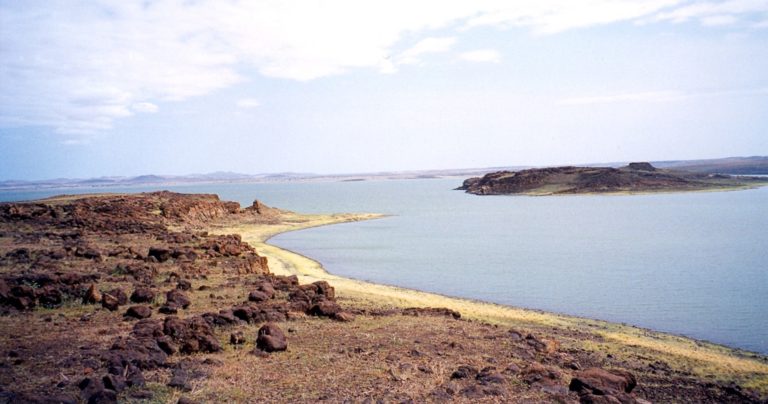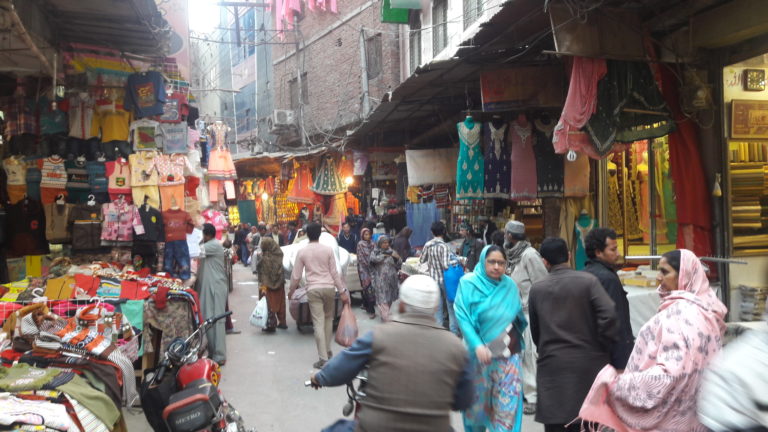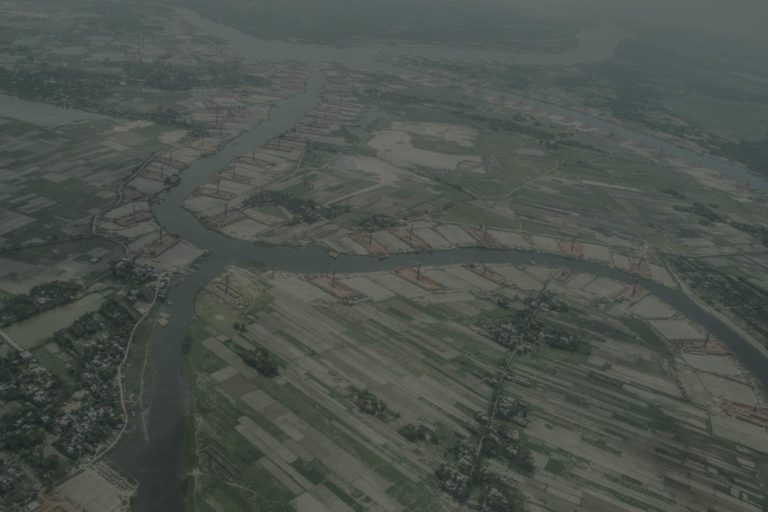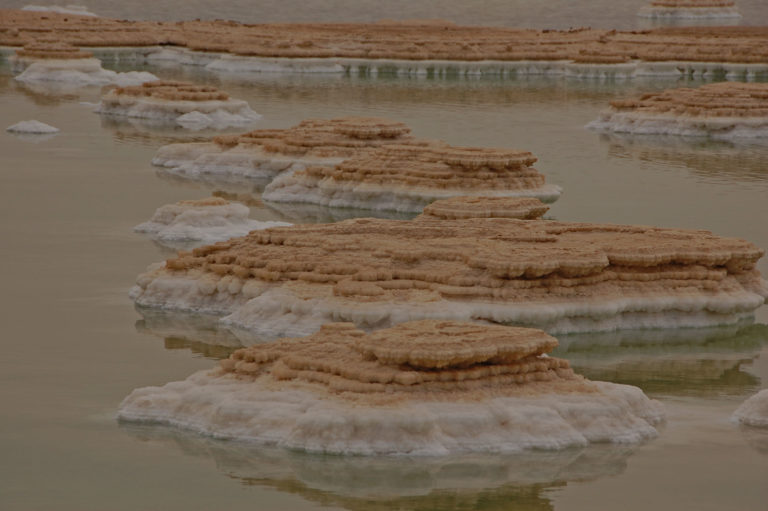WATER AND PEACE
SaafConsult offers services in the field of transboundary water management (aquifers, rivers, lakes, etc.). We facilitate elaboration of water sharing agreements and share our expertise in international negotiations on treaties on water.
Learn moreEXAMPLE: Joint World Heritage Centre/ IUCN Reactive Monitoring Mission to Ethiopia concerning Lake Turkana National Parks
PHOTO SOURCE: Wikipedia, Author: Doron
COUNTRY: Ethiopia
CLIENT: IUCN Geneva
At its 38th session, the World Heritage Committee welcomed the invitation by the State Party of Ethiopia for a joint World Heritage Centre / IUCN reactive monitoring mission to review the impacts of the Gibe III dam, other planned hydro-electric developments and associated large-scale irrigation projects in the Omo region on the Outstanding Universal Value (OUV) of Lake Turkana National Parks World Heritage property in Kenya.
The objectives of our assignment included:
1. Assess the likely impacts of the Gibe III dam on the water level of Lake Turkana and on the OUV of the property.
2. Assess progress achieved with the Strategic Environmental Assessment (SEA) of the Lake Turkana Basin, and review the mitigation measures identified to ensure the maintenance of the OUV of the property during the filling of the dam reservoir and during the operation of the
3. Assess the status and likely impacts of large-scale irrigation projects in the Omo region on the OUV of the property, in particular the Kuraz Sugar
4. Discuss any anticipated future projects related to dams and water
5. In line with paragraph 173 of the Operational Guidelines, assess any other relevant issues that may negatively impact on the OUV of the property, including its conditions of integrity and protection and management.

WATER, LIVELIHOODS AND CLIMATE CHANGE
SaafConsult assists in development of water management systems for production and rural development. We facilitate processes of participatory irrigation management. We advise on how to use water for tourism responsibly and effectively. We help communities and authorities in developing effective adaptation and mitigation strategies for climate change.
Learn moreEXAMPLE: Punjab Intermediate Cities Improvement Investment Program
PHOTO SOURCE: Wikipedia, Author: Tahir mq
COUNTRY: Pakistan
CLIENT: Asian Development Bank
Asian Development Bank provides technical assistance to the Government of Islamic Republic of Pakistan for Punjab Intermediate Cities Improvement Investment Programme (PICIIP). The Government of Punjab’s (GoPb) economic growth strategy reinforces strong urban reform policy to address the challenges of urban development including poverty. The strategy calls for institutional effectiveness, financial sustainability, better service company performance and management, and improved operational and commercial efficiencies. The policy opens the way for piloting a variety of public-private partnerships in urban services. GoPb extends instruments to incentivize performance, improve governance and management of utilities, streamline processes, and increase operational efficiency to the intermediate cities indicated Sahival and Sialkot as pilot cities for this process.
PICIIP investment program supports GoPb’s phased approach to urban development, focusing on broad urban reforms, followed by improvements in urban institutions, and finally investments in infrastructure.
It addresses three core causes:
– absence of strategic vision and integrated urban planning at the city level;
– ineffective and inefficient use of financial and natural resources;
– limited and unreliable financing of infrastructure and operation and maintenance.
At the provincial level this includes support to GoPb on its ongoing reforms on:
– the sector institutional structure and capacity development;
– review and refinement of policies, laws, and procedural guidelines; and
– expansion of the performance incentive model for financial transfers.
At the city level, the roll out of the sector reforms is implemented through:
– the formulation of city development plans;
– separation of asset ownership from service delivery through the use of existing or establishment of new corporate entities;
– strengthened business processes and capacity of utilities;
– investments in prioritized urban infrastructure.
The investment program is based on social and gender. Environmental and climate benefits are expected to include improved health and climate proofed infrastructure.
SaafConsult, jointly with its consortium partners from Pakistan – Dev-Consult and NEC Consultants, has been contracted for consulting services to the Programme, Tranche 1. Consultancy ensures tranche readiness, early delivery of key infrastructure and nonphysical outputs, and enhanced local government and municipal utilities capacity and performance. This includes studies and assessment reports supporting strategic planning and investments in Sahival and Sialkot.
The consultancy consisted of:
1. Support to the Local Government and Community development Department (LG&CDD) of GoPb in implementing the project preparatory technical assistance for the investment program and prepare the prefeasibility study;
2. Expertise to prepare the investment program considering its institutional, financial, and technical complexity;
3. Pre-implementation activities such as advance procurement;
4. Diligence and advisory work through preparing of: city development plan; development framework for the city institutions including capacity building framework for LG&CDD; services and asset management agreements (SAMAs), standard operating procedures of board of directors and management, performance incentive system and first business plan for the utility companies; and advance design and advance procurement for urban infrastructure in Sialkot and Sahiwal & Punjab Local Government Academy as per selected pre-feasibility projects;
Support and guidance on safeguards procedures.
See the full list of our references
WATER AND NATURE
SaafConsult performs ecosystem valuations and develops methodologies for payment for environmental (water) services. We support institutions responsible for wetlands, watershed and ecosystem management. We facilitate integrated river basin and water resources management systems.
Learn moreEXAMPLE: Final Evaluation 2016: Regional Knowledge Network on Systemic Approaches to Water Resources Management
COUNTRY: Egypt, Jordan, Lebanon, Morocco, Palestine
CLIENT: Egypt, Jordan, Lebanon, Morocco, Palestine
Regional Knowledge Network on Systemic Approaches to Water Resources Management (RKNOW) is a regional project funded by the European Union aiming to create a Regional Knowledge Network on Water that assists in strengthening the application of systematic approaches to water management and governance in five countries (Lebanon, Jordan, Palestine, Morocco and Egypt) in regard to influence the policy and decision making processes as a means to enhance good governance in the water sector.
The objective of the assignment is to analyze the activities and results of the RKNOW Project in terms of the planned outcomes, the processes adopted to design and implement the project to achieve intended results, and the approaches and strategies which should be maximized to build on for up-scaling and/or replicating this kind of project. Specifically to asses:
(1) In reference to process:
– the approach of the project in terms of implementation arrangements (management structure, operational strategies, monitoring system, administrative systems and procedures). Identify any constraints, internal or external, to achieving objectives.
– the project design – its methodologies and intervention strategies for effectiveness in addressing the problems identified.
– to what degree the project has achieved its objectives and targets. Include any unintended positive and/or negative impacts.
– financial management, transparency and accountability.
– the quality and nature of the partnerships and partner relationships and how this facilitated or constrained impact and progress.
(2) In reference to impact:
– Consider the scale, depth, coverage, multiplier effect (secondary or tertiary benefits), sustainability, and cost-effectiveness of impacts. Identify for whom specifically benefits accrued.
– To identify the benefit of networking activities on the targeted network members and against the anticipated knowledge outputs established by the revised log frame 2012.
(3) In reference to reflection & up-scaling:
– Identify lessons learned, weaknesses and successes and the factors for failure / success.
– Identify the elements, strategies, and interventions which can be replicated.
– Consider how impacts for this type of project can be maximized (what needs to be improved) in scaling up this project activity.
– Consider were the potential exists for replication and up-scaling, given the requisite conditions for success, as identified by this evaluation.
– Identify the resource requirements for replication.
Five evaluation missions to Egypt, Jordan, Lebanon, Morocco and Palestine were completed with a scope covering different stages of the RKNOW Project from launching, implementation and phasing out, namely:
– Project Design and Start up;
– Project Implementation and Performance;
– Achievement of Objectives;
– Potential impact and sustainability
– Partnership Dynamics; and
– Project Management and Support.

WATER SUPPLY AND SANITATION
SaafConsult facilitates provision of potable water and sanitation. We support initiatives aiming at decentralization of water provision and offer expert services to water service providers. We also work on responsible management of water in urban areas.
Learn moreEXAMPLE: GOAL Framework Consultancy for Country Programme WASH Evaluations and Assessment against Global WASH Aims and Priorities
COUNTRY: Ethiopia, Haiti, Honduras, India, Kenya, Liberia, Malawi, Niger, Philippines, Sierra Leone, South Sudan, Sudan, Syria, Uganda and Zimbabwe
CLIENT: GOAL Ireland
Conducting an evaluation of WASH projects/programmes via a framework agreement that encompasses numerous country programmes over a 36 month period. The specific objective for each country programme is established in a separate TOR up to 1 month prior to the commencement of that specific evaluation. Evaluations are conducted in line with the principles set out by the Development Assistance Committee of the OECD with reference to programme relevance, efficiency, effectiveness, impact and sustainability.
In addition to the specific country evaluation objectives, an additional objective is to assess the country programme against strategic goals and objectives for GOAL globally and against GOAL’s 10 Key WASH Principles with an objective measurement to allow cross-country meta-analysis.
SaafConsult is the lead company and provides the following services:
– Contract management;
– Provision of experts;
– Quality control;
– Implementation of evaluations;
– Reporting.

